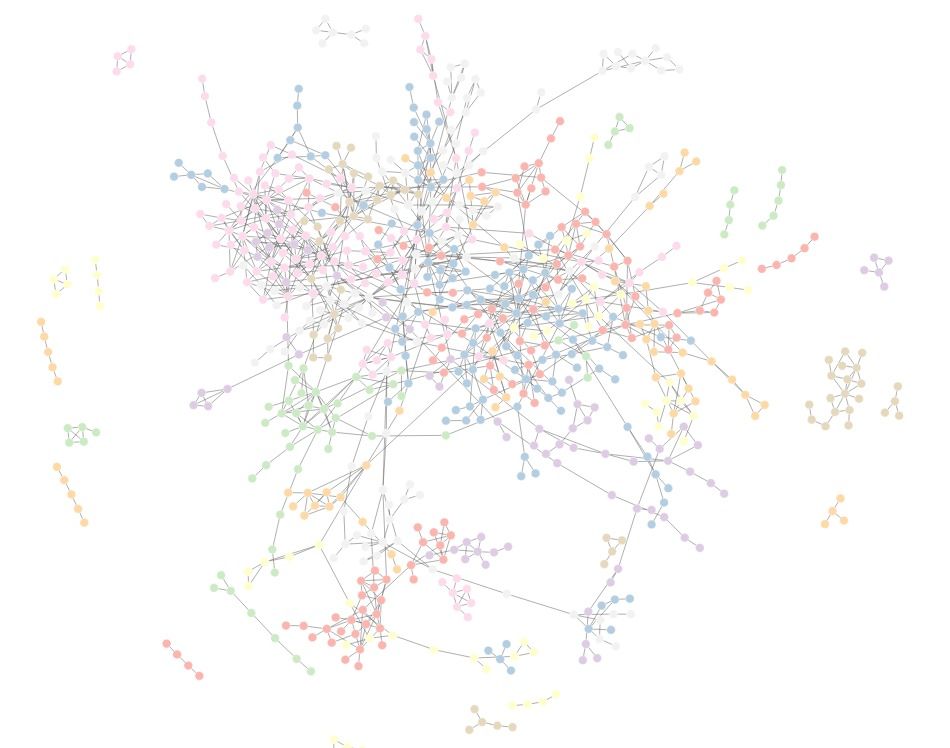
Enjoys books and podcasts on science & history. Spends too much time in etymology rabbit holes.
Also goes by Ket. ketikagarg.com 🇮🇳

www.theverge.com/2019/9/19/20...

www.theverge.com/2019/9/19/20...
These authors wanted to know whether gender shapes how scholars are treated when presenting research.
So they built a massive dataset of 2,000+ economics seminars, job talks, and conference presentations from 2019–2023...


These authors wanted to know whether gender shapes how scholars are treated when presenting research.
So they built a massive dataset of 2,000+ economics seminars, job talks, and conference presentations from 2019–2023...
A deep dive into metaphor with @sflusberg.bsky.social!
Metaphors delight, provoke, captivate, shock, and galvanize us. What does it say about the human mind that we simply can't escape them—and frankly don't want to?
Listen: disi.org/the-aura-of-...

A deep dive into metaphor with @sflusberg.bsky.social!
Metaphors delight, provoke, captivate, shock, and galvanize us. What does it say about the human mind that we simply can't escape them—and frankly don't want to?
Listen: disi.org/the-aura-of-...
We tracked large groups of Finnish competitive ice-fishers to study how social foragers use social information when searching for resources. 🐟
Link: www.science.org/doi/10.1126/... (contact me for open access)
We tracked large groups of Finnish competitive ice-fishers to study how social foragers use social information when searching for resources. 🐟
Link: www.science.org/doi/10.1126/... (contact me for open access)
Applications are due 15 February 2026.
Our core group in SDN is RAdolphs, me, DMobbs, JO'Doherty, and ARangel. Our track record of postdoc success is strong

Applications are due 15 February 2026.
Our core group in SDN is RAdolphs, me, DMobbs, JO'Doherty, and ARangel. Our track record of postdoc success is strong
"Blame and Compromise During Risky Dyadic Foraging" osf.io/preprints/ps...
Feedback is very welcome! Thread: 🧵 1/n


"Blame and Compromise During Risky Dyadic Foraging" osf.io/preprints/ps...
Feedback is very welcome! Thread: 🧵 1/n
Here we propose decomposing different information processing mechanisms to unify disparate phenomena traditionally classified as "collective intelligence."


Soon to be published in @cognitionjournal.bsky.social
Thanks to @divintelligence.bsky.social
Thread by Cody Moser @culturologies.co 👇🏽
Here we propose decomposing different information processing mechanisms to unify disparate phenomena traditionally classified as "collective intelligence."


Soon to be published in @cognitionjournal.bsky.social
Thanks to @divintelligence.bsky.social
Thread by Cody Moser @culturologies.co 👇🏽
"Blame and Compromise During Risky Dyadic Foraging" osf.io/preprints/ps...
Feedback is very welcome! Thread: 🧵 1/n


"Blame and Compromise During Risky Dyadic Foraging" osf.io/preprints/ps...
Feedback is very welcome! Thread: 🧵 1/n
My guide to data visualization, which includes a very long table of contents, tons of charts, and more.
--> Why data visualization matters and how to make charts more effective, clear, transparent, and sometimes, beautiful.
www.scientificdiscovery.dev/p/salonis-gu...

Non-paywalled version (preprint) here: osf.io/preprints/so...
A new model by SFI External Professor Paul Smaldino and colleagues explains how wealth, experience, and environment shape our risk tolerance — and how those effects persist across generations.

Non-paywalled version (preprint) here: osf.io/preprints/so...

www.nature.com/articles/s41...

"participants reported developing shallower knowledge from LLM summaries even when the results were augmented by...web links" vs. search

"participants reported developing shallower knowledge from LLM summaries even when the results were augmented by...web links" vs. search
Why is cognitive effort experienced as costly?
(or why does it hurt to think)
never written a review paper before in my life, that was a new and unusual experience

Why is cognitive effort experienced as costly?
(or why does it hurt to think)
never written a review paper before in my life, that was a new and unusual experience
Dog domestication is a singular "natural experiment" in brain evolution, one that we're just starting to understand. It's a bit bonkers more neuroscientists aren't working on it.
Just one of the topics discussed in our latest episode, w/ @erinhecht.bsky.social!
Listen: disi.org/of-breeds-an...

Dog domestication is a singular "natural experiment" in brain evolution, one that we're just starting to understand. It's a bit bonkers more neuroscientists aren't working on it.
I argue that collaboration networks act like unequally distributed (and gendered) social capital
aaronclauset.github.io/slides/Claus...




I argue that collaboration networks act like unequally distributed (and gendered) social capital
aaronclauset.github.io/slides/Claus...
In new work led by Valerii Chirkov, we show that payoff selectivity is key in transforming a group of individuals into an intelligent collective 🤝🧠
www.youtube.com/watch?v=xY7n...
Preprint: osf.io/preprints/ps...

In new work led by Valerii Chirkov, we show that payoff selectivity is key in transforming a group of individuals into an intelligent collective 🤝🧠
www.youtube.com/watch?v=xY7n...
Preprint: osf.io/preprints/ps...
Our new review paper on the PSYCHOLOGY OF VIRALITY is now out in @cp-trendscognsci.bsky.social (it was led by @steverathje.bsky.social)
Read the full paper here: www.cell.com/trends/cogni...

Our new review paper on the PSYCHOLOGY OF VIRALITY is now out in @cp-trendscognsci.bsky.social (it was led by @steverathje.bsky.social)
Read the full paper here: www.cell.com/trends/cogni...
I wrote a paper with 4 principles to optimize large scientific collaborations based on the science of cooperation & collective intelligence: osf.io/preprints/ps...
And a substack summary: powerofus.substack.com/p/four-princ...

I wrote a paper with 4 principles to optimize large scientific collaborations based on the science of cooperation & collective intelligence: osf.io/preprints/ps...
And a substack summary: powerofus.substack.com/p/four-princ...
osf.io/preprints/ps...
In a sample of ~2 billion comments, social media discourse becomes more negative over time
Archival and experimental findings suggest this is a byproduct of people trying to differentiate themselves
Led by @hongkai1.bsky.social in his 1st year (!) of his PhD

osf.io/preprints/ps...
In a sample of ~2 billion comments, social media discourse becomes more negative over time
Archival and experimental findings suggest this is a byproduct of people trying to differentiate themselves
Led by @hongkai1.bsky.social in his 1st year (!) of his PhD
@psmaldino.bsky.social @babeheim.bsky.social
@psmaldino.bsky.social @babeheim.bsky.social
“Academia filters most funding, publishing, and hiring decisions through senior insiders, which favors ideas within existing paradigms.”
worksinprogress.co/issue/why-sc...

“Academia filters most funding, publishing, and hiring decisions through senior insiders, which favors ideas within existing paradigms.”
worksinprogress.co/issue/why-sc...

